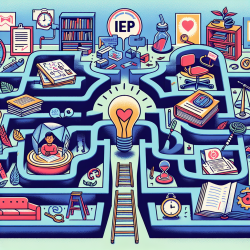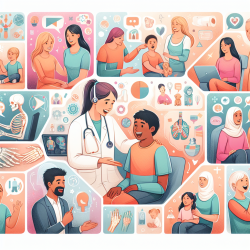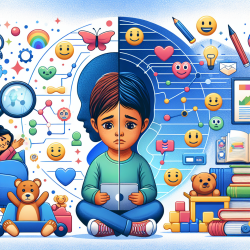Feeling lost in the intricate process of Individualized Education Program (IEP) planning and meetings is a common experience for many educational psychologists. The task is daunting but crucial in ensuring that students with special needs receive the personalized support and therapy they require to thrive in their educational journey. This comprehensive guide aims to transform feelings of confusion into confidence, providing you with the knowledge and strategies needed to navigate IEP planning and meetings effectively.
Understanding the IEP Process
The IEP process is a collaborative effort involving educators, therapists, parents, and the student (when appropriate) to create a customized plan that addresses the unique needs of a student with disabilities. As an educational psychologist, your role is pivotal in evaluating the student's needs, recommending interventions, and ensuring that the IEP is tailored to promote academic and personal growth.
Key Steps in IEP Planning
- Preparation: Before the IEP meeting, gather all relevant data on the student's performance, including assessments, therapy reports, and teacher observations. This information will form the basis of your recommendations.
- Collaboration: Work closely with teachers, therapists, and parents to understand the student's strengths and challenges. Your expertise in psychological assessments can provide valuable insights into how the student learns best.
- Goal Setting: Based on your assessments, collaborate with the IEP team to set achievable, measurable goals for the student. Ensure these goals are specific, time-bound, and tailored to the student's unique needs.
- Recommendations: Suggest evidence-based interventions and accommodations that can support the student's learning. This might include therapy services, modifications to the curriculum, or assistive technology.
Effective Participation in IEP Meetings
IEP meetings can be overwhelming for families and educators alike. As an educational psychologist, you play a critical role in facilitating understanding and collaboration among all parties involved. Here are some strategies to ensure productive and positive IEP meetings:
- Communicate Clearly: Use clear, jargon-free language when discussing assessments and recommendations. Ensure that all participants, especially parents, understand the information being shared.
- Listen Actively: Be open to input from parents and teachers, who have valuable insights into the student's day-to-day experiences and needs. Their perspectives can enrich the IEP process and outcomes.
- Advocate for the Student: Always keep the student's best interests at the forefront of discussions. Advocate for the resources and supports necessary to help the student achieve their goals.
- Follow Up: After the IEP meeting, stay engaged with the implementation of the plan. Offer your support in monitoring the student's progress and adjusting the IEP as needed.
Challenges and Solutions
Despite your best efforts, you may encounter challenges in IEP planning and meetings, such as disagreements among team members or resource limitations. Here are some tips for addressing these challenges:
- Facilitate Open Dialogue: Encourage open and respectful communication among all team members. This can help resolve disagreements and ensure that decisions are made in the student's best interest.
- Seek Creative Solutions: When faced with resource limitations, explore alternative strategies or resources that can support the student's learning. This might include online therapy services or community-based supports.
- Stay Informed: Keep abreast of the latest research and best practices in special education and psychological assessment. This knowledge can enhance your contributions to the IEP process and ensure that the student receives the most effective support.
Feeling lost in the IEP process is understandable, but with preparation, collaboration, and a focus on the student's needs, you can navigate these challenges successfully. As an educational psychologist, your expertise is invaluable in ensuring that every student has the opportunity to reach their full potential. Remember, the goal of the IEP process is not just to create a plan, but to build a pathway to success for students with special needs.










